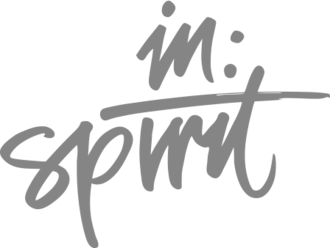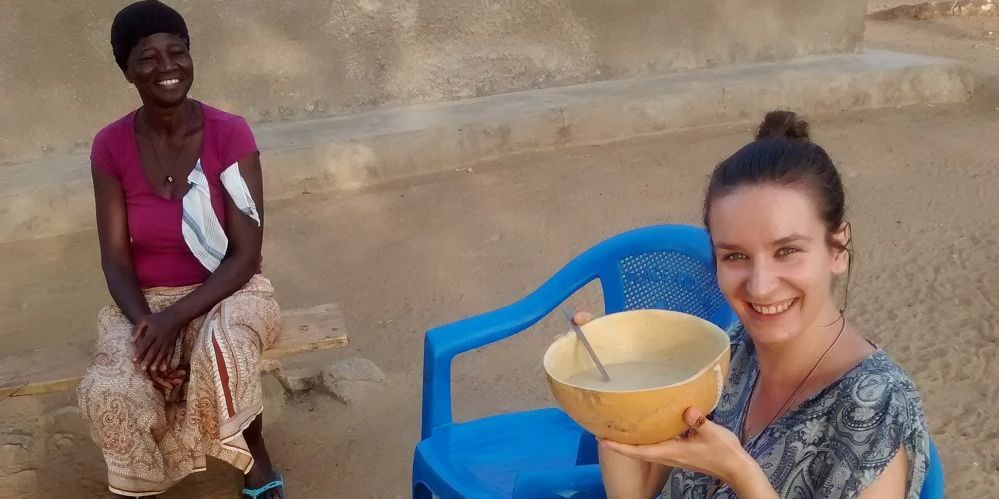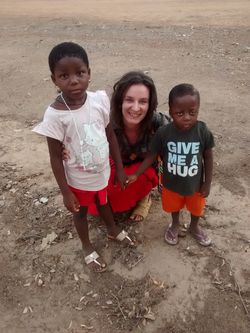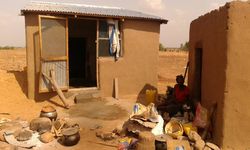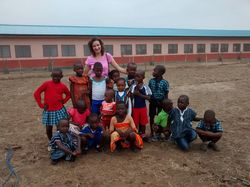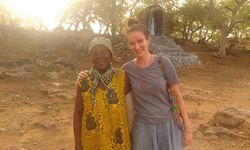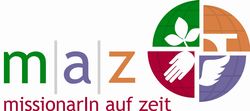Life there is a typical countryside one: the majority of the people is farming, but due to dryness and short rainy seasons it is not an easy task at all. The soil is not very good, which highly influences the general standard of living. Poverty is truly visible as well as the fact that people cannot really eat properly.
Here for the first time I could see the traditional Ghanaian houses and I was amazed- no water, no electricity, but the way how wisely everything is organized is so impressive.
A very remarkable experience was the meeting with a chief of Wiaga- local highest authority responsible for current issues, who discusses, decides and solves problems from the area. Again, what could come to my mind as a European, hearing the “chief” the image was an old person in colorful clothes and painted body.
The reality was that a middle age man in jeans and T-shirt, speaking fluently English greeted me with a smile on his face and welcomed wholeheartedly.
Every time I look at people in Wiaga and observe their life, I am so grateful that even for a short time, I can at least in some way, be a part of it. I noticed that it is a great joy for them when I try to at least greet them in local language. Their strong bond to culture, language and broadly understood cultural heritage is impressive.
I could attend a funeral where every little gesture or object has a deeper meaning. It is really advisable to respect and ask for explanations of all these things and surely it is another way to make them proud, appreciated and happy.
One lady whom I visited was very glad to give me some food and then explain how particular dishes are used. The way it is planned and was created is very creative and useful at the same time.
The culture is very enriching but the willingness to learn new things is also there. It happened to me that the child met on the sandy road asked for any book because he would like to read at home. I was also asked to show how to write or develop reading skills.
Another example is that one of the Sisters started a catering and sewing course for women. They came hours before opening time and stayed long after closing, because they liked it so much and wanted to learn more and more.
The work of Sisters is very much appreciated. Even when I used to help a little bit in the hospital or school, or do some social work, people will never forget to say thank you.
Life there is not easy: shortage of medicines, not enough money for health insurance, hunger, old widows left without support… These are just few examples.
But if you ask anyone how does one feel, they will always answer “kusunkwanga” which means “I am better”.
This is exactly what I would mostly like to learn from Wiaga: to always have hope and trust for a better tomorrow.
- Aleksandra
